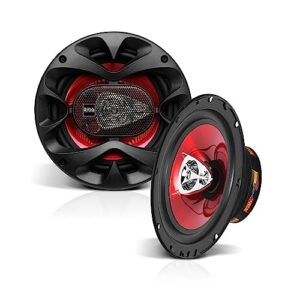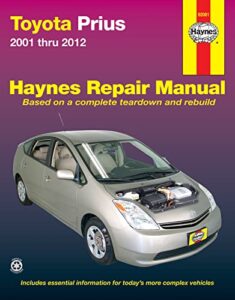As an Amazon Associate, I earn from qualifying purchases
Are you wondering if you can use 5W30 oil instead of 0W20 for your Toyota? Choosing the right engine oil is crucial for your car’s performance and longevity.
Using the wrong oil can lead to engine problems and costly repairs. You’ll discover the key differences between these two oils and what it means for your Toyota. Keep reading to find out which oil is best for your engine and how to protect your investment.
Oil Viscosity Basics
Understanding oil viscosity is key to choosing the right oil for your Toyota. Oil viscosity shows how thick or thin the oil is at different temperatures. It affects how well the oil flows through your engine. Using the correct viscosity helps your engine run smoothly and last longer.
Different engines need different oil thickness. The numbers on oil bottles, like 5W30 or 0W20, give clues about their viscosity. Let’s break down what these numbers mean and how they impact engine performance.
What Do 5w30 And 0w20 Mean?
Oil numbers tell about the oil’s thickness in cold and hot temperatures. The first number with “W” stands for winter or cold temperature. Lower numbers mean the oil flows easier when cold. For example, 0W flows better in cold than 5W.
The second number shows the oil’s thickness at normal engine temperature. Higher numbers mean thicker oil when hot. So, 30 is thicker than 20 at high temperatures.
0W20 oil is thinner when hot compared to 5W30. This helps engines start easier in cold weather and saves fuel.
How Viscosity Affects Engine Performance
Oil with the right viscosity protects engine parts by reducing friction. Thin oil flows quickly, helping parts move smoothly at startup. Thick oil protects better at high temperatures and heavy loads.
Using oil that is too thick can make your engine work harder. It may reduce fuel efficiency and cause wear. Using oil that is too thin may not protect engine parts well in hot conditions.
Choosing the right oil viscosity keeps your engine clean, cool, and running well for a long time.

Credit: www.youtube.com
Toyota’s Recommended Oil
Toyota recommends using 0W20 oil in many of its vehicles. This choice is not random. It is based on careful testing to match the engine’s needs perfectly. The right oil helps the engine work smoothly and last longer. Using the recommended oil keeps your car running well in different temperatures.
Why Toyota Specifies 0w20
Toyota specifies 0W20 because it flows better at low temperatures. This means the engine gets oil quickly on cold mornings. It reduces engine wear during startup. The thinner oil also helps improve fuel efficiency. It keeps engine parts clean and reduces sludge buildup. Toyota tests this oil to ensure it fits their engines perfectly.
Benefits Of Using Manufacturer’s Choice
Using the oil Toyota recommends keeps the warranty valid. It helps avoid engine problems caused by wrong oil. The oil protects engine parts and improves performance. It also supports better fuel economy and lower emissions. Sticking to Toyota’s choice saves money on repairs in the long run. It is the safest option for your car’s health.
Differences Between 5w30 And 0w20
Understanding the differences between 5W30 and 0W20 oil is important for Toyota owners. Both oils serve to protect your engine, but they perform differently under various conditions. Knowing these differences helps you choose the right oil for your car’s needs.
Cold Start Performance
0W20 oil flows better at low temperatures. This means it reaches engine parts faster during cold starts. 5W30 is thicker when cold, so it may take longer to circulate. Faster oil flow reduces engine wear on startup.
Operating Temperature Behavior
5W30 oil stays thicker at high temperatures. This thickness protects engine parts under heat and stress. 0W20 thins out more when hot, providing less resistance. The right thickness keeps the engine running smoothly.
Fuel Efficiency Impact
0W20 oil helps improve fuel efficiency. Its lower thickness reduces engine friction, saving fuel. 5W30 creates more friction, which may lower mileage. Using oil with the correct weight supports better gas economy.
Potential Risks Of Using 5w30
Using 5W30 oil instead of 0W20 in your Toyota may cause some problems. The two oils have different thickness levels and flow properties. These differences can affect how your engine works and lasts over time. Understanding these risks helps you protect your car and avoid costly repairs.
Engine Wear Concerns
5W30 is thicker than 0W20. Thicker oil may not flow as easily, especially in cold weather. This can cause the engine parts to get less lubrication. Poor lubrication leads to faster wear and tear. Over time, this can damage important engine components.
Effect On Warranty
Using the wrong oil can affect your car’s warranty. Toyota recommends 0W20 for a reason. If you use 5W30 instead, the company might not cover engine problems. This means you could pay for repairs that would be free otherwise. Always check your warranty terms before changing oil types.
Long-term Engine Health
Long-term use of 5W30 can change how your engine performs. Thicker oil may increase engine stress. It can also reduce fuel efficiency. Over years, this might lead to engine sludge buildup. Sludge harms engine parts and lowers engine life. Staying with the recommended oil helps keep your engine healthy longer.
When 5w30 Might Be Acceptable
Choosing the right oil for your Toyota matters a lot. Sometimes, 5W30 oil can work instead of 0W20. This depends on certain situations. Knowing when 5W30 might be okay helps protect your engine and keeps it running smoothly.
Using the wrong oil can cause problems, but 5W30 has some cases where it fits well. Here are key moments when 5W30 might be acceptable for your Toyota.
High Mileage Engines
Older engines often need thicker oil. 5W30 is thicker than 0W20. It helps reduce oil leaks and burning in engines with many miles. This thickness protects worn parts better. It can keep the engine parts lubricated longer.
Extreme Weather Conditions
5W30 works well in warmer weather. It handles higher temperatures better than 0W20. In hot climates, 5W30 keeps engine oil pressure steady. It also protects engine parts from heat damage. This makes it a good choice if your area is very hot.
Temporary Use Scenarios
Sometimes, 5W30 is okay for short periods. This can happen if 0W20 is not available. Using 5W30 briefly will not harm the engine. But it is best to switch back to 0W20 soon. Temporary use helps avoid delays in engine care.
Credit: www.toyotanation.com
Expert Recommendations
Experts recommend careful steps before changing your Toyota’s oil type. Using 5W30 instead of 0W20 may affect engine health. Following trusted advice helps keep your car running smoothly. Understanding expert tips can prevent costly problems.
Consulting Your Owner’s Manual
Start by reading the owner’s manual. Toyota designs it to guide you on the right oil type. The manual explains oil viscosity and why 0W20 suits your engine. Using the recommended oil keeps the engine protected and efficient.
The manual also lists temperature ranges and driving conditions for the oil. Ignoring this can lead to poor lubrication and engine wear. Always follow the manual’s instructions to avoid issues.
Seeking Professional Advice
Talk to a trusted mechanic before switching oil types. Professionals know how different oils affect Toyota engines. They can suggest if 5W30 is safe for your car’s age and mileage.
A mechanic can also check engine health and recommend oil based on driving habits. Their advice helps you avoid damage and maintain performance. Never change oil type without expert guidance.
Monitoring Engine Performance
After using 5W30, watch your engine closely. Listen for unusual noises or rough idling. Check for warning lights on the dashboard.
Track fuel efficiency and engine temperature. Any drop in performance may signal oil issues. Promptly address problems by returning to the recommended 0W20 oil. Regular checks help keep your Toyota safe.

Credit: www.reddit.com
Frequently Asked Questions
Can I Use 5w30 Instead Of 0w20 In My Toyota?
Using 5W30 instead of 0W20 in Toyota is not recommended due to different viscosity and engine needs.
What Problems Can 5w30 Cause In A Toyota Engine?
5W30 can reduce fuel efficiency and increase engine wear in Toyota engines designed for 0W20.
Is 5w30 Oil Thicker Than 0w20?
Yes, 5W30 is thicker, which can affect engine performance and cold starts in Toyota cars.
Can Using 5w30 Void My Toyota Warranty?
Using oil not recommended by Toyota, like 5W30 instead of 0W20, may void your vehicle’s warranty.
When Is It Okay To Use 5w30 Instead Of 0w20?
Only use 5W30 if Toyota’s manual or a mechanic explicitly approves it for your model.
How Does Oil Viscosity Affect Toyota Engine Health?
Correct oil viscosity ensures proper lubrication, reduces wear, and keeps the engine running smoothly.
Conclusion
Choosing between 5W30 and 0W20 oil for your Toyota matters. The right oil keeps your engine running smooth and safe. Using 5W30 instead of 0W20 can affect fuel efficiency and engine wear. Always check your owner’s manual for the best oil type.
Stick to recommended oil to protect your car. Better to be safe than sorry. Your engine will thank you with longer life and better performance. Keep it simple, follow guidelines, and drive worry-free.
As an Amazon Associate, I earn from qualifying purchases


